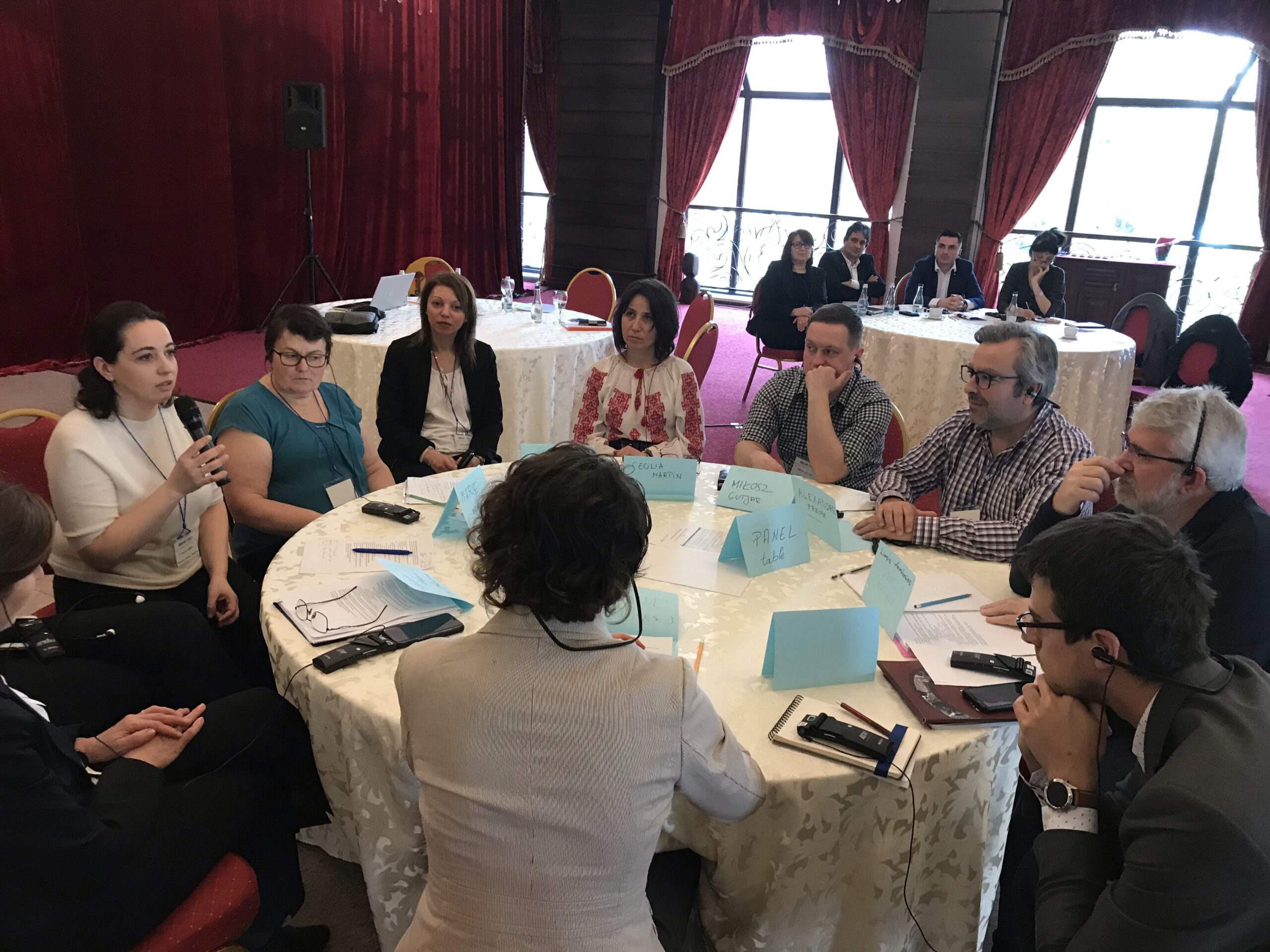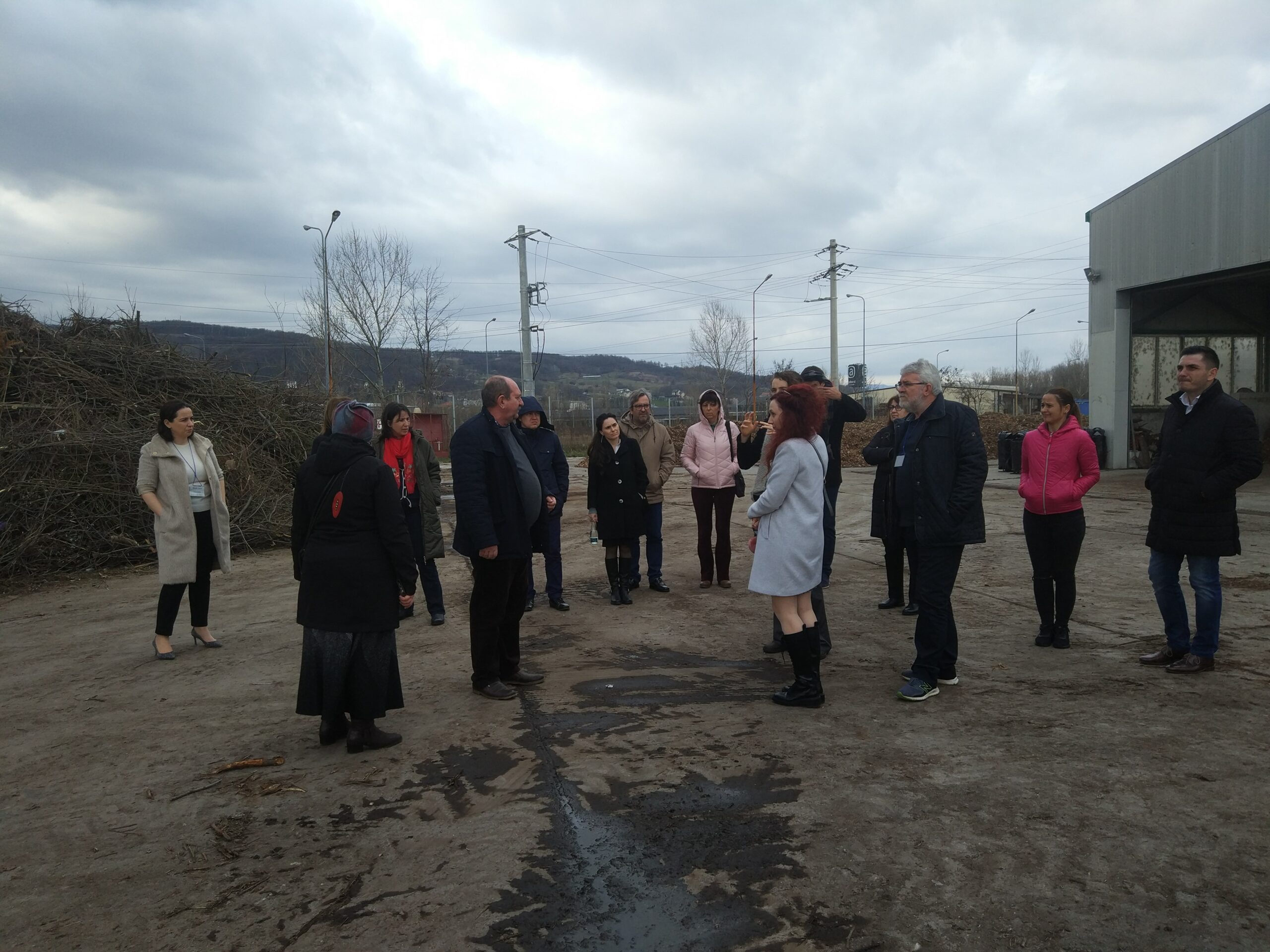Will there be any “waste” in 2030? Workshop on hard facts and visions about circular economy
Municipal representatives from Romania, Poland, Portugal, Czech Republic, and Greece came together at the BEACON Regional Workshop to identify ways to reduce emissions from the waste sector. The workshop was hosted by Râmnicu Vâlcea (Romania) and took place on 10 and 11 March.

Marie Perinkova, head of the environmental department in Prachatice (CZ) is well aware of the challenges municipalities face in terms of waste management: “Despite a variety of communication measures, waste production is increasing”. Participants of the workshop agreed, that there is a need to change this trend. “Our priorities are to prevent waste formation and promote re-use and waste separation and as a result, our citizens separate more waste than the Czech average”, Perinkova says. Another joint challenge identified during the workshop is waste separation: “Used batteries are the most dangerous municipal waste and too many of them are lost from collection. If we continue failing here, we ‘eat’ and ‘breath’ batteries.” Elena Gaspar, expert on e-waste recycling painted a vivid picture of the need to achieve the European targets for separate collection.
Experts from different fields and backgrounds introduced a variety of topics related to waste management. A site visit and inputs from scholars organised by the hosting municipality provided extensive opportunities to see and discuss commendable waste management practices that are leading the way to cleaner, more sustainable cities. This allowed participants to create a vision for the future circular economy and discuss the question “Will there be any waste in 2030?”. Reflections on how to reach there ranged from improved law enforcement to incentivising separate disposal of bio-waste, a crucial waste component in terms of GHG emissions.

Responsible for the content of this page is Julia Legelli / adelphi: Guidehouse
